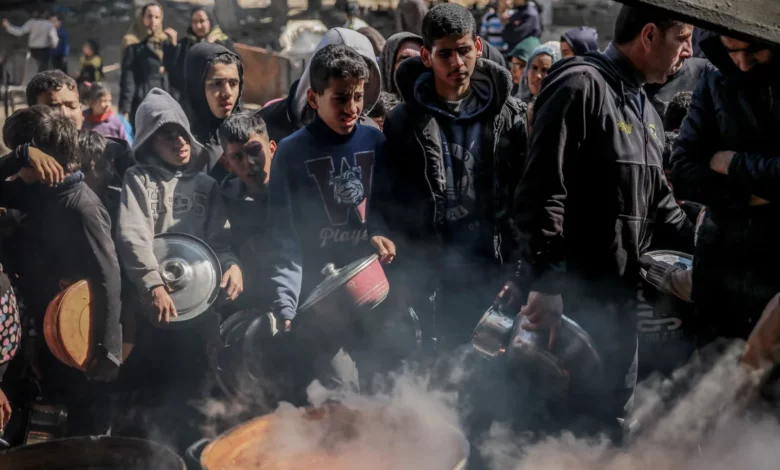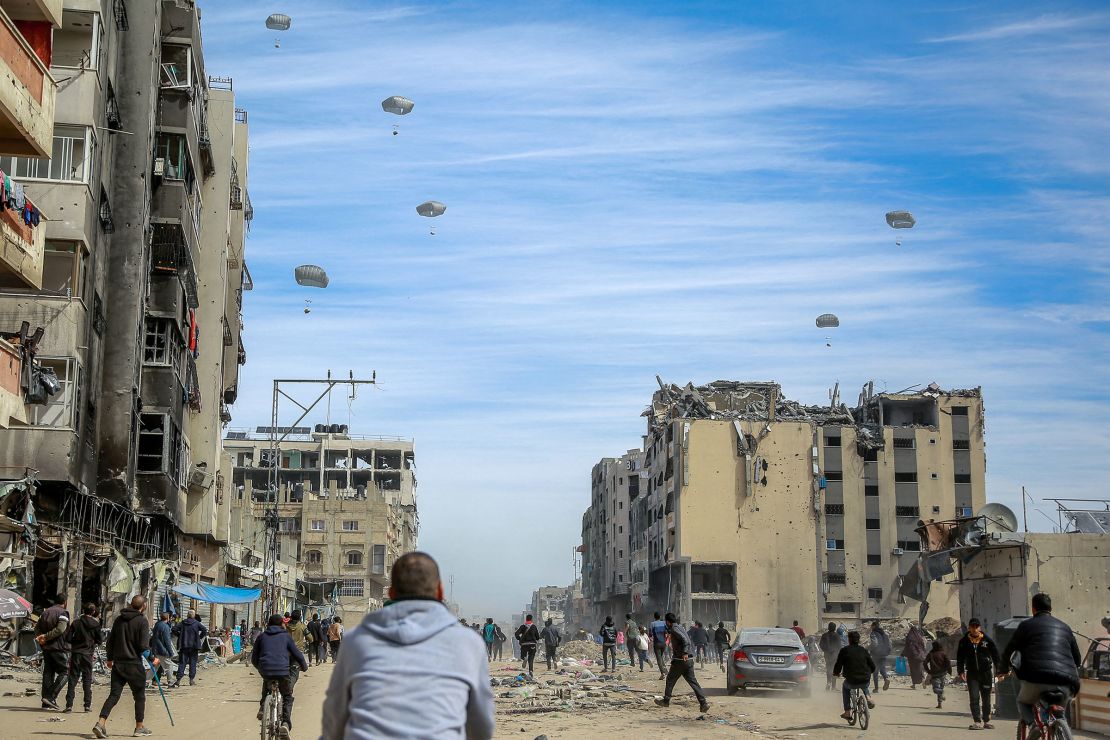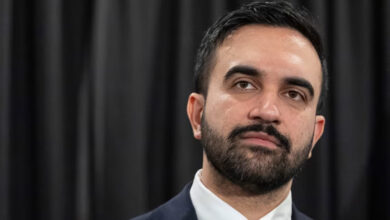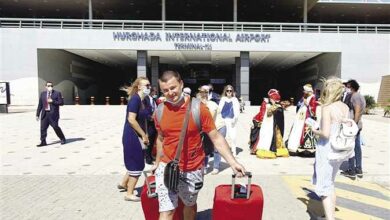
The United States will begin air dropping food aid to the people of Gaza, President Joe Biden announced Friday, as the humanitarian crisis deepens and Israel continues to resist opening additional land crossings to allow more assistance into the war-torn strip.
Speaking in the Oval Office, Biden said the US would be “pulling out every stop” to get additional aid into Gaza, which has been under heavy bombardment by Israel since the October 7 Hamas terror attacks.
“Aid flowing to Gaza is nowhere nearly enough,” the US president said, noting that “hundreds of trucks” should be entering the enclave.
Biden said the US is “going to insist that Israel facilitate more trucks and more routes to get more and more people the help they need, no excuses.”
He also noted the efforts to broker a deal to free the hostages and secure an “immediate ceasefire” that would allow additional aid in.
The US military is working to carry out the airdrops in the coming days, a US official told CNN.
The announcement of the US airdrops is an acknowledgment of the dire situation in Gaza, where more than a hundred people were killed Thursday where Israeli troops opened fire as people waited for a food convoy in the north.
Aid trucks tried to escape the area, accidentally ramming others and causing further deaths and injuries, the eyewitnesses added to CNN.
The airdrops will provide some relief to those on the ground. However, their use is highly unlikely to bring about a sustainable solution for the humanitarian crisis in Gaza, as each drop can only bring in a fraction of the amount of aid that could be transported into the enclave by trucks.
Instead, their use underscores the devastating impact of the Israeli government’s ongoing refusal to open more land crossings for the critically needed aid. The US’ calls for the Netanyahu government to open more crossings in the north have thus far failed. In the south, the number of trucks entering the war-torn strip trickled to just 85 per day last week.
Biden made the announcement as his administration faces sharp domestic criticism for its handling of the conflict – criticism that has had political consequences for the president during an election year.
National Security Council spokesman John Kirby described airdrops as “a supplement to, not a replacement for, moving things in by ground.”
State Department spokesperson Matt Miller said Thursday that air drops “would help immediately.”
“But the real solution here to this is to try to get – or to get, I should say – an agreement that would dramatically increase the flow of assistance in and help with the distribution problems and help with the problem that civilians face of being able to move safely to get to aid when it actually does make it in,” Miller said at a department briefing.
Earlier this week, Jordan, Egypt, the UAE, Qatar and France airdropped relief aid on various areas in the Gaza Strip in a sign of how desperate the situation has become.

There are discussions with Israel and other stakeholders about a potential maritime corridor for humanitarian aid into Gaza, Kirby confirmed Friday. However, numerous logistical challenges would need to be addressed for the corridor to actually be operational, a US official told CNN.
Senior US officials have repeatedly pressed Israeli officials in face-to-face meetings on the urgent need to open additional crossings.
“This is a matter of life and death,” said USAID Administrator Samantha Power, who met on Wednesday with Prime Minister Benjamin Netanyahu and Israeli Defense Minister Yoav Gallant. Power announced $53 million in additional humanitarian aid during her travels in the region this week.
US officials have also held ongoing conversations with Israeli officials about the need to ensure the safety of humanitarian aid workers once they enter Gaza.
“The aid workers who on the ground in Gaza are risking their lives to get food to people in desperate, desperate need, those aid workers have to be protected. They have to know they can do their jobs without being shot at and killed,” Power said on Tuesday.
Convoys have come under attack within the enclave, both “by desperate mobs” and “by criminal elements,” US envoy for Middle East humanitarian issues David Satterfield said last month.
Israeli forces targeted members of the Hamas-run police force that travels with the UN aid convoys in an effort to protect them from looting, which has led the police to stop protecting the convoys, Satterfield said.
“With the departure of police escorts, it has been virtually impossible for the UN or anyone else – Jordan, the UAE, any other implementer – to safely move assistance in Gaza because of criminal gangs,” he said.
This story has been updated with additional details.
CNN’s Oren Liebermann and Samantha Waldenberg contributed reporting.




